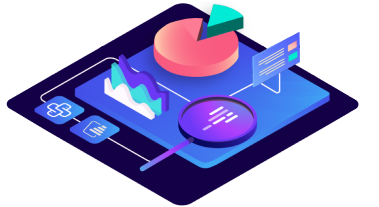Building an application portfolio for the job market

The goal of this course is the accompanied development of a portfolio of projects. Career changers in particular are usually better able to convince potential companies with a convincing work sample than with their CV alone.
You will learn what employers look for in work samples in the field of data analytics and data science and which focal points are suitable for you. Together with your mentors, you will select suitable data sets and questions. You will then work on projects for your application portfolio, either individually or in small groups.
The training is suitable for you and your career aspirations if you have a degree, ideally in the fields of mathematics, computer science, natural sciences, technology, business administration, (business) information technology or have a comparable qualification or previous experience. You should also have already completed further training as a Data Analyst, BI Analyst or Data Scientist.
Confident use of Data Analytics workflow with Python or SQL and Power BI or confident use of Data Science workflow with Python.
Objectives:
- Strategic selection of projects
- Creating and publishing projects locally
- Carrying out projects in a structured way
Content:
- Introduction:
• Getting to know each other
• Course schedule and look at building blocks
• Introduction to the learning environment
- Selecting a data project:
• Principles for good projects
• Example data analytics and data science projects
• Sources for suitable datasets
• Licenses for datasets
• Estimating how much work will go into a data project
- Weekly Overview:
• Setting up your work environment:
• Installing Python and the necessary modules locally
• Introduction to GitHub Pages
• Optional brief introduction to Git
• Structured working in data teams:
• Data analytics workflow
• Data science workflow
• Starting portfolio work:
• Preparation
• Division into teams and assignment to proposed projects
• Creating a project plan and assigning tasks
Objective:
- Carrying out projects in a structured way
Content:
- Principles of Agile project management:
• Daily stand-ups
• Sprint planning
• Sprint retrospective
• Kanban
• Online project management tools
- Continuation of project work
Objective:
- Presentation of results and discussion using technical terminology
Content:
- Completion of project work
- Final presentation:
• Creating the final presentation
• Presenting the final presentation to the other teams and mentors
The demand for data experts is high. Around 4 million data experts will be needed in Europe by 2025. In Germany alone, 149,000 IT jobs are currently vacant. The demand for data and AI experts in particular continues to grow enormously.
But a decision for a data career is so much more than just a safe decision for the future! As a data expert, you deal with powerful, socially relevant topics, are a tech professional, and are communicative and creative at the same time. The profession is varied, can be combined with most other professions and offers an attractive salary. And most importantly, with us it can be learned unerringly!





StackFuel GmbH
Nostitzstrasse 20
10961 Berlin
info@stackfuel.com
030 / 544 533 420
Solutions
Company
Resources
Contact